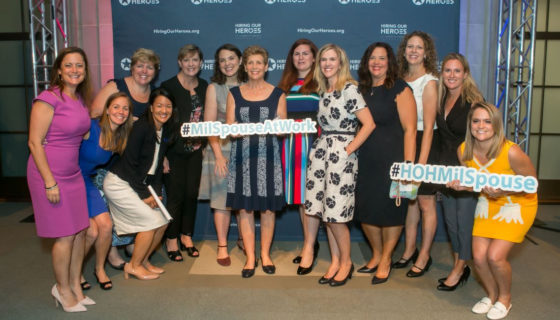Transition Toolbox: Preparing for Civilian Employment

Whether your service spans four years or more than 20, when it’s time to swap your military boots for business wing tips, the change to the civilian workforce can feel jarring. If military separation or retirement is on your calendar this year, then you have plenty to consider, but don’t let the worry about a career change weigh you down. It’s critical to map out your plan for the way forward, and there are basic steps you can take today to start a successful journey to civilian employment.
SIGN UP FOR THE TRANSITION ASSISTANCE PROGRAM (TAP)
Have you scheduled to attend a TAP class? Transition programs are offered at every installation to ensure service members and their spouses are educated about and prepared for the switch to civilian life. Each service branch has a unique transition program, but every TAP includes core curriculum with individually selected modules on career technical training, education, and entrepreneurship. Attending a TAP class is a foundational step in deciding the civilian career path you want to pursue. Start searching for a TAP class in your area by visiting the Department of Defense’s Transition GPS portal.
IDENTIFY YOUR TRANSFERRABLE SKILLS
Knowing your skillset and strengths is vital for crafting an accurate and impressive resume. Before you can tout your employable traits to a hiring manager, you need to define them for yourself. Each Military Occupational Specialty has translatable hard and soft skills essential for your future job in the civilian world and employers are seeking candidates with both sets of skills.
Hard Skills. These skills are your tangible, specific, job-related qualifications. Hard skills are often the requirements laid out in a job description and are commonly used during the hiring process to compare candidates. This is where you can highlight the technical, specialized, and impressive abilities you honed while in the military, so be sure to tailor your resume and your relevant experience specifically to highlight these hard skills for each job application you submit.
Soft Skills. Though more intangible, these are equally as important when it comes to workplace success. Soft skills are the personal attributes you possess for interacting positively and productively with others. These characteristics can include effective communication, critical thinking, leadership, and teamwork. Soft skills should be referenced in all of your job application materials, including when you are interviewing. Prepare relevant examples of when you used these skills successfully and rehearse them out loud. The more you practice, the more you will be prepared to respond confidently during an actual job interview.
CRAFT A RESUME
Now that you’ve identified your skills and abilities, you can put this treasure trove of experience into a resume to convey your value to prospective employers. A constructive mindset to consider while crafting your resume is the perspective of an employer: What can this candidate do for me? Your resume should confidently answer this question by demonstrating your desirable skills and talents.
Customizing your resume for each position is an important consideration. To demonstrate your qualification for a job, you may want to highlight specific projects or responsibilities as they relate to the position you’re seeking. If the idea of creating a resume from a blank page has you stressed, familiarize yourself with some of the free resources available to help you get started. Hiring Our Heroes offers a state-of-the-art resume tool for crafting a strong civilian resume built on your military experience using language that employers will understand. Resume Engine is a free military-to-civilian skills translator that takes your military experience and converts it to civilian equivalents. Your experience is then formatted into a professional resume that you can print or email for interviews and networking opportunities.
NETWORK, NETWORK, NETWORK
A surefire way to stand out of the crowd of applicants is by having an established connection to the individual or organization making the hire. The wider your network of personal and professional contacts, the better your chances are for being recognized as a candidate an open position — or better yet, learning about those openings before they’re posted.
Networking takes time and sincerity, but the payoffs from successful networking can be significant, especially if it results in a job offer. Consider your military peers who are now in the corporate world and ask them about their transition experiences. Do they have any tips for successfully networking in the civilian sector? Also, reach out to past commanders or supervisors who are in corporate jobs and update them on your upcoming transition. Don’t rush right to asking about job openings, but instead, make the effort to authentically connect with them. Through these ongoing interactions with those in your network, your name and skills will be top of mind when a potential job becomes available.
Looking to build your network even more? Look for professional trade organizations for the industry you plan to pursue. Research the local chapters in your area and join their membership. This is an easy and proven way to network among those currently in your chosen field, while also putting your name and face out to the industry you plan to work in.
Finally, consider attending a Hiring Our Heroes Hiring Fair or Transition Summit. These one-of-a-kind hiring events offer veterans, service members, and military spouses the opportunity to connect with military-ready employers who are looking to hire. Free workshops and expert discussion panels are offered onsite, focused on topics such as how to effectively work a job fair, how to negotiate salary, and how to define your personal brand. Registration is always free and events are located at military installations and civilian venues around the world.
Your military service has prepared you for the unexpected and has groomed you to be prepared for change. With the right tools now at your disposal, you can go confidently forward in your military transition and seek out the best career opportunity to fit your goals.



